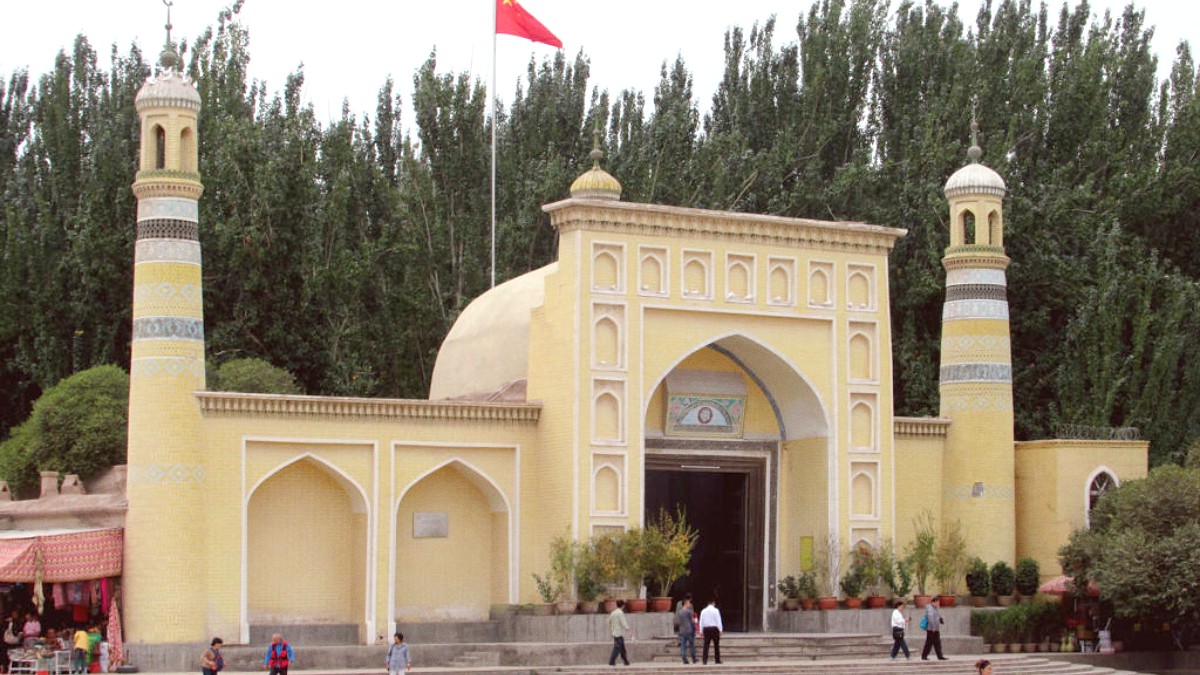
Xinjiang, China
Kashgar experiences a cold desert climate, meaning it has distinct seasons with outstanding temperature swings and low humidity. Spring (April-May) and Autumn (September-October) bring comfortable temperatures. Summer (June-August) carries hot and dry conditions, often exceeding 30°C (86°F). Winter (November-March) is cold, with temperatures often dropping below freezing, offering a quiet experience.
Spring also comes with the possibility of dust or sandstorms due to the nearby Taklamakan Desert, which can reduce visibility. Summer days are long, making possible extended exploration, but midday heat often calls for finding shade or indoor activities. Autumn often sees comfortable, sunny days ideal for sightseeing, with fresh, sweet produce abundant in markets.
Most foreign visitors acquire a visa to enter mainland China, Xinjiang included. The L-visa (Tourist Visa) functions as the most common option, typically allowing single, double, or multiple entries with durations of stay from 30 to 90 days. The application process for a Chinese visa has become more streamlined but still calls for attention to detail, including an online form completion and an in-person appointment for document submission and biometric data collection.
Upon arrival in China, you present your passport, visa, and a completed arrival card to immigration officers. Fingerprints and a digital photograph may be taken. When traveling to Xinjiang, additional security checks are common, including secondary questioning and baggage scans. This process is standard for all travelers entering the region. Joining an organized tour group with a licensed local guide is often the only practical way to travel around Kashgar and throughout Xinjiang, given permit needs for many regions, especially border areas or culturally sensitive zones.
Careful attention to detail is critical.
Complete online application, schedule appointment, prepare documents.
Expect thorough security checks and cooperation at all times.
Accuracy and completeness are paramount.
Passport (6+ months validity, 2 blank pages), printed application, recent photo.
Detailed itinerary, flight reservations, confirmed hotel bookings, proof of funds.
Security measures are heightened here.
Organized tours with licensed local guides often represent the only practical way to visit restricted areas.
Highly challenging or not permitted for foreign visitors in many surrounding areas without local sponsorship.
The Renminbi (RMB), also known as the Chinese Yuan (CNY), is China's official currency (¥). As of mid-2024, 1 USD is approximately 7.2 CNY. Exchange foreign currencies at banks like the Bank of China, which generally give the best rates. Major hotels and airports also offer exchange services, but rates may be less favorable. ATMs are widely available and accept international cards. China operates as a largely cashless society. WeChat Pay and Alipay are the dominant digital payment platforms. Foreign visitors may find setting these up challenging, as they often call for linking to a Chinese bank account. Cash is used less frequently, but it is necessary for some small transactions, local markets where bargaining unfolds, and some taxis.
Tipping is generally not customary in mainland China. Offering a tip sometimes causes confusion or may be seen as rude. This applies to restaurants, taxis, and hotels. For tour guides and drivers on organized tours, a small gratuity may be accepted and appreciated for excellent service, though it is not an expectation. Money-saving strategies include eating local street food, using public transport, bargaining at markets, and booking flights/hotels well in advance during peak seasons.
¥250 - ¥500 (approx. $35 - $70 USD) for hostel bed, street food, bus travel, free attractions.
¥500 - ¥1000 (approx. $70 - $140 USD) for comfortable hotel, local restaurants, taxis, popular attractions.
¥1000+ (approx. $140+ USD) for high-end hotels, fine dining, private car/tours.
Street Food: ¥5-¥20. Local Restaurant Meal: ¥20-¥60 per person.
City Bus: ¥1-¥2. Taxi (short ride): ¥10-¥30.
No vaccinations are strictly required for entry to China for general tourism. However, consultation with your doctor or a travel clinic well before your trip supports discussing routine vaccinations and region-specific health precautions.
Traveler's Diarrhea is a common travel ailment; drink only bottled or purified water, avoid tap water, and eat thoroughly cooked food. Air pollution presents a concern, especially during colder months or dust storms. Summers in Kashgar are intensely hot and dry, with strong sun, posing sunburn and heatstroke risks.
It is strongly recommended to acquire comprehensive Travel insurance before your trip. Ensure your policy covers medical emergencies, emergency evacuation, trip cancellation, and lost luggage. Consider SafetyWing for digital nomads or Insubuy for US visitors.